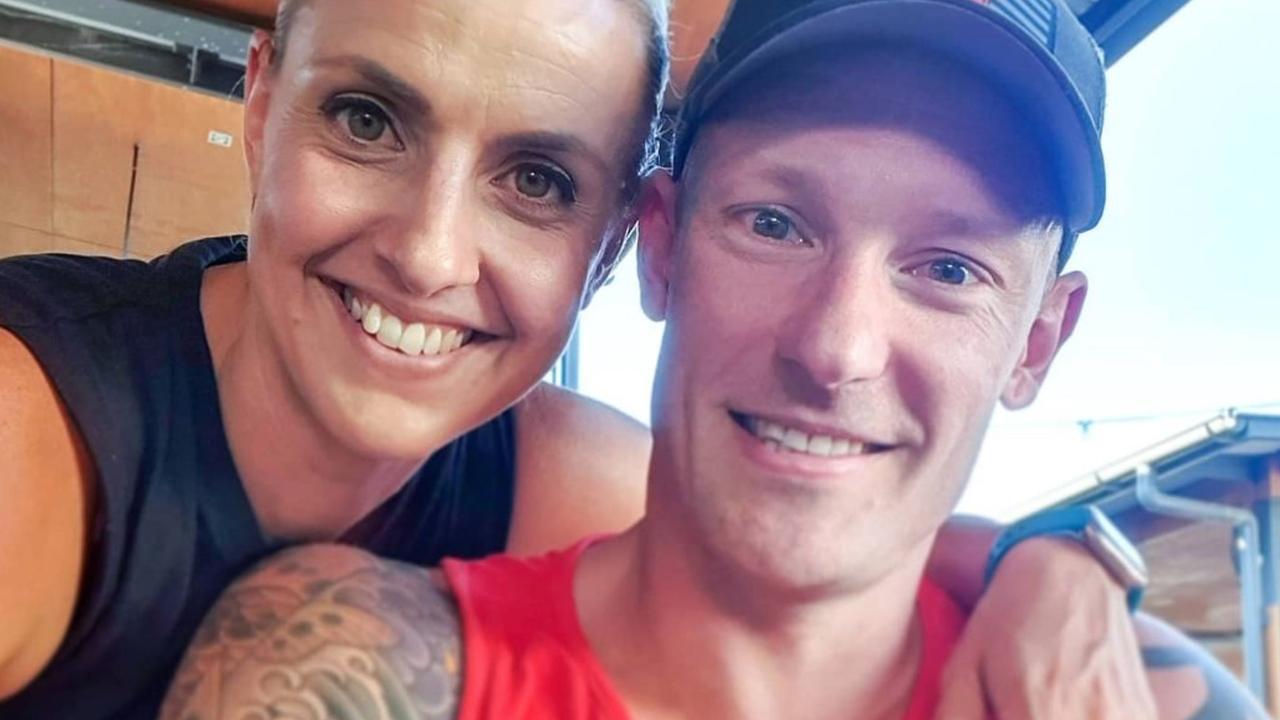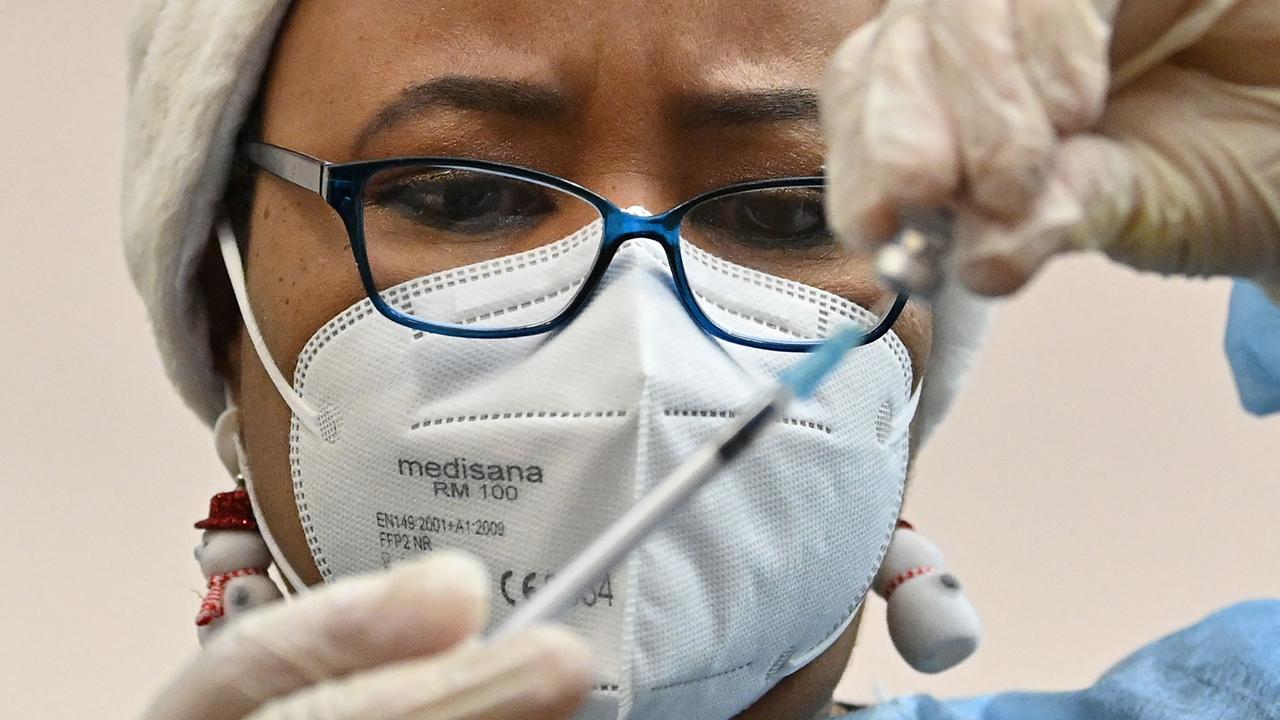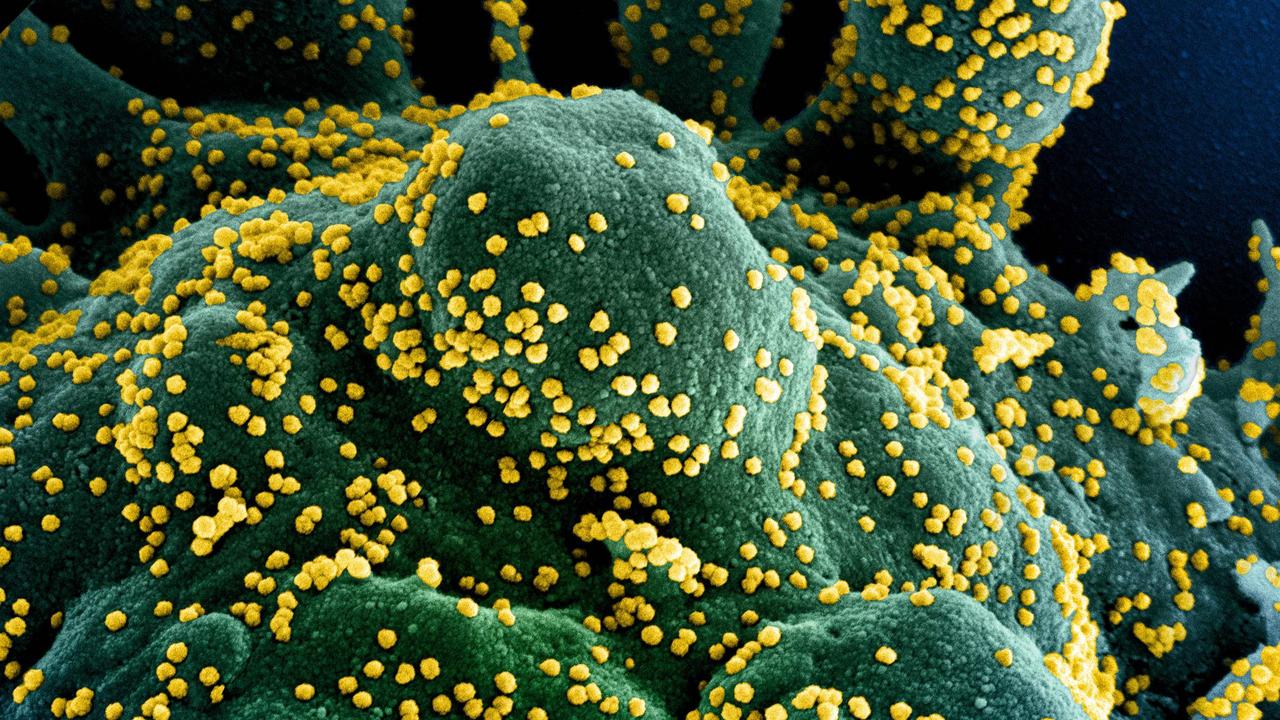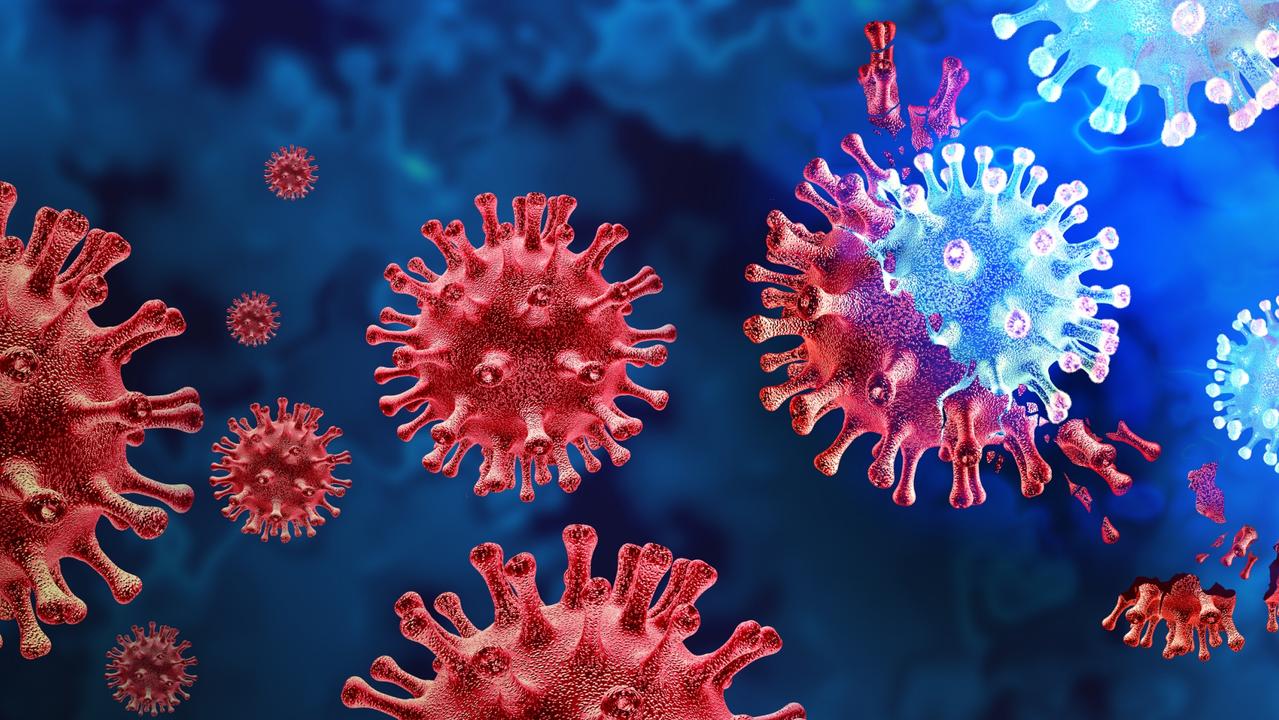Sydney man facing heart transplant after Covid leaves him with chronic health issues
A Sydney couple, who caught Covid early last year when the virus was just hitting Australia, are now facing a massive health battle 18 months later.
A Sydney man is still grappling with the ongoing effects of coronavirus, more than 18 months after he and his wife caught the disease, with fears he could soon be put on a heart transplant list due to the virus.
Amanda and Rob Hodgson were some of the first people in Australia to catch coronavirus when Rob returned from a work trip in New York on March 13 last year.
By the next day he had started coughing and on the 18th, tested positive to Covid.
Amanda, who spoke to news.com.au about her husband’s health battle, tested positive on March 21.
Mrs Hodgson said the couple were sick for two weeks, with both of them suffering aches and joint pain and coughing.
However, the couple, who were both fit and healthy at the time of their diagnosis, appeared to recover well after a fortnight.
Amanda said the couple even put themselves through a fitness program “just to show ourselves we were OK” after hearing of how much Covid could impact their health.

Everything seemed fine for the Hodgson family – with 38-year-old Rob even taking part in a 1300km charity ride for kids cancer in October last year.
However things changed in November, when Rob was in the family’s garage training on his bike.
“He was doing a ride in the garage on the wind trainer and felt dizzy, he told me he thought he was going to pass out,” Amanda said.
“But it was a really hot day so we ignored it, we thought it must’ve been that.”
Half an hour later, Amanda was serving dinner for the family when Rob called out to her from the loungeroom.
He was lying down and his heart was beating rapidly, at 210 beats per minute.
An ambulance was called, with paramedics telling Rob he didn’t need to go the hospital, but advising him to see a GP in the next 24 hours.
Amanda said her husband’s health issues came at a peculiar time, with the couple receiving texts from Westmead Hospital encouraging them to come for a check-up six months after their Covid diagnosis.
Rob’s text message had come a few days before he collapsed but, due to how fit and healthy he was feeling, didn’t think it was necessary.
Amanda went for her six-month Covid check-up at Westmead Hospital two days after her husband collapsed, making a casual comment about the situation to doctors.
“I said, ‘I don’t know if this is important but my husband collapsed a few days ago’ ... the doctor looked at me wide-eyed and told him to come in straight away,” she said.
After numerous tests and a number of cardiology appointments, Rob was diagnosed with dilated cardiomyopathy, a disease that stops the heart pumping enough blood around the body.
Cardiologists recommended Rob immediately be fitted with a defibrillator, to shock his heart if it was beating irregularly or stopped beating completely.
The doctors studying Rob believe the Covid infection worked its way through his heart and “caused scarring, disrupting the way his heart is supposed to work”, Amanda said.
“The doctors said the scarring looks exactly like what happens when virus travels through your heart.”
The cardiologists at Westmead Hospital, in Sydney’s west, have asked to write a medical paper on Rob, to better study his condition.
“He’s the first case of this for them but they had seen enough cases overseas to tell him to see a specialist straight away.
“We haven’t had enough cases here and of course here it’s a minimal chance, but when you hear that there’s a small percentage of risk – well that number is people and it’s hard for us to ignore.”
Rob was fitted with the defibrillator on December 16 and was working his way back to exercise, slowly working out on his bike, when on January 5 he had another episode.
“I’ll never forget it. He yelled my name and was standing up next to the bike telling me he had been shocked by the Dfib,” Amanda said.
As Rob lay down to try and calm his body, the Dfib shocked him again.
Paramedics were called, telling Rob the Dfib likely saved his life.
Since Rob’s first heart episode in November, the family have since been battling through the mental and physical toll of it all.
“(Rob) is dealing with a lot of fear and loss, he’d just started doing a lot of cardiac rehab to get back on his bike when he was shocked again.”
Rob went in for surgery last week, with doctors delivering more harrowing news.
After going off his anti-arrhythmia drugs before surgery, to allow doctors to try and find exactly where the arrhythmia in his heart was coming from, doctors said they’d hit a wall.
“The doctor told him, ‘I couldn’t see where your arrhythmia is coming from which likely means your heart muscle is not working and you’re going into cardiac failure’,” Amanda said.
Rob is now booked in to see a transplant specialist next month, with the doctor likely recommending the 38-year-old go on the list for a new heart.
The family had a meeting with the transplant specialist earlier this year, who expressed his shock at Rob’s diagnosis.
“The doctor said ‘we don’t see 38-year-old guys with this’,” Amanda said.
“The transplant doctor said there was no reason to put him on the list because he functions quite well and he’s fit, he doesn’t seem like he’s going into heart failure.”
The couple have asked if the medication and the Dfib will maintain Rob’s heart for long enough but doctors said he’s likely facing heart failure in the next 18 months.
The couple are also grappling with telling their two sons – aged seven and nine.
“It’s all a bit full on. I’m a performance coach so I’m normally very positive, but this sucks,” Amanda said.
“We haven’t told the kids (about the transplant) yet ... we‘re coming to the end of school holidays so we’re just trying to create happy memories before we go back to doom and gloom.”
With the average wait time for a new heart in Australia being around six months, Amanda said the family was just “staying on our toes and being ready for when it comes”.
Read related topics:Sydney




